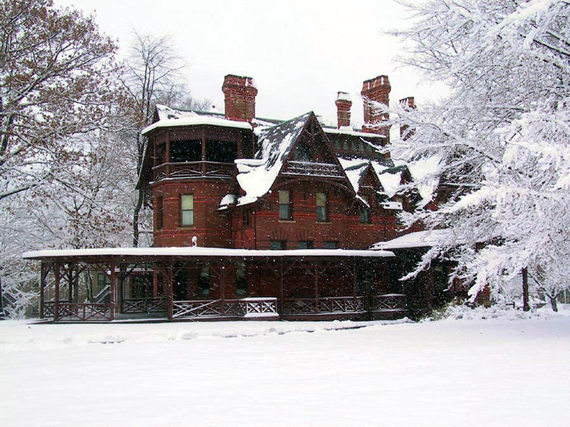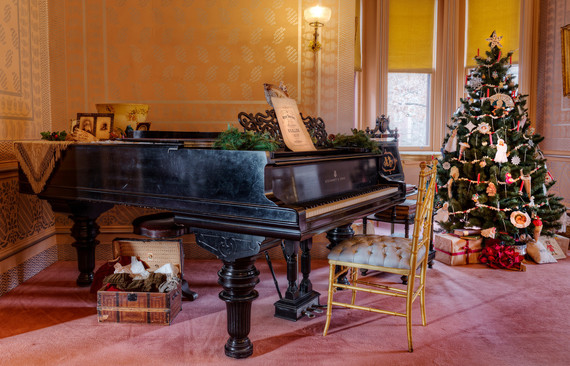"Good-by for a few minutes, till I come down to the world and ring the kitchen doorbell." -Mark Twain as Santa Claus
'Tis the season to read aloud the most delightful letter Mark Twain ever wrote.
I read this letter long before I had children, but it stayed with me and inspired me to write notes to my own children "from Santa." Of course, there is an entire industry around this concept now, and children today receive text messages and videos from Santa, not to mention the third-party communication going on with elves on shelves.
The letter from Mark Twain (real name Sam Clemens) to his toddler Susie is a holiday classic in our family. Reading it aloud has become an annual tradition, and if you celebrate Christmas and Santa's generosity to well-behaved youngsters, I predict reading it will become a tradition in your family, too.
A little context...
Sam Clemens wrote this letter on Christmas morning in 1875, one year after the family moved into the Gilded Age mansion they built in Hartford, Connecticut. Susie was three-and-a-half years old. She had apparently written to Santa with some specific requests, which prompted Sam's imaginative response. In the letter from Santa (aka: Papa), Mark Twain wrote, "...I can read your and your baby sister's jagged and fantastic marks without any trouble at all. But I had trouble with those letters which you dictated through your mother and the nurses, for I am a foreigner and cannot read English writing well."
He went on to write, "I will call at your kitchen door about nine o'clock this morning to inquire. But I must not see anybody and I must not speak to anybody but you. When the kitchen doorbell rings, George must be blindfolded and sent to open the door. Then he must go back to the dining room or the china closet and take the cook with him. You must tell George he must walk on tiptoe and not speak--otherwise he will die someday."
Ah, that humor! He couldn't resist, even in a letter from Santa Claus.
"George" was George Griffin, the family's butler, a former slave and the man to whom Twain would (sort of) dedicate Adventures of Huckleberry Finn ten years hence. George was much more than family butler. He was family friend and in on all jokes.
"Santa Twain" further cautioned, "People may talk if they want, until they hear my footsteps in the hall. Then you tell them to keep quiet a little while till I go back up the chimney. Maybe you will not hear my footsteps at all--so you may go now and then and peep through the dining-room doors, and by and by you will see that thing which you want, right under the piano in the drawing room-for I shall put it there."
The entire letter takes fewer than five minutes to read, but it conjures a vivid family memory and paints a picture of that 1875 Christmas morning when Santa Claus came to call at the Clemens home in Hartford.

